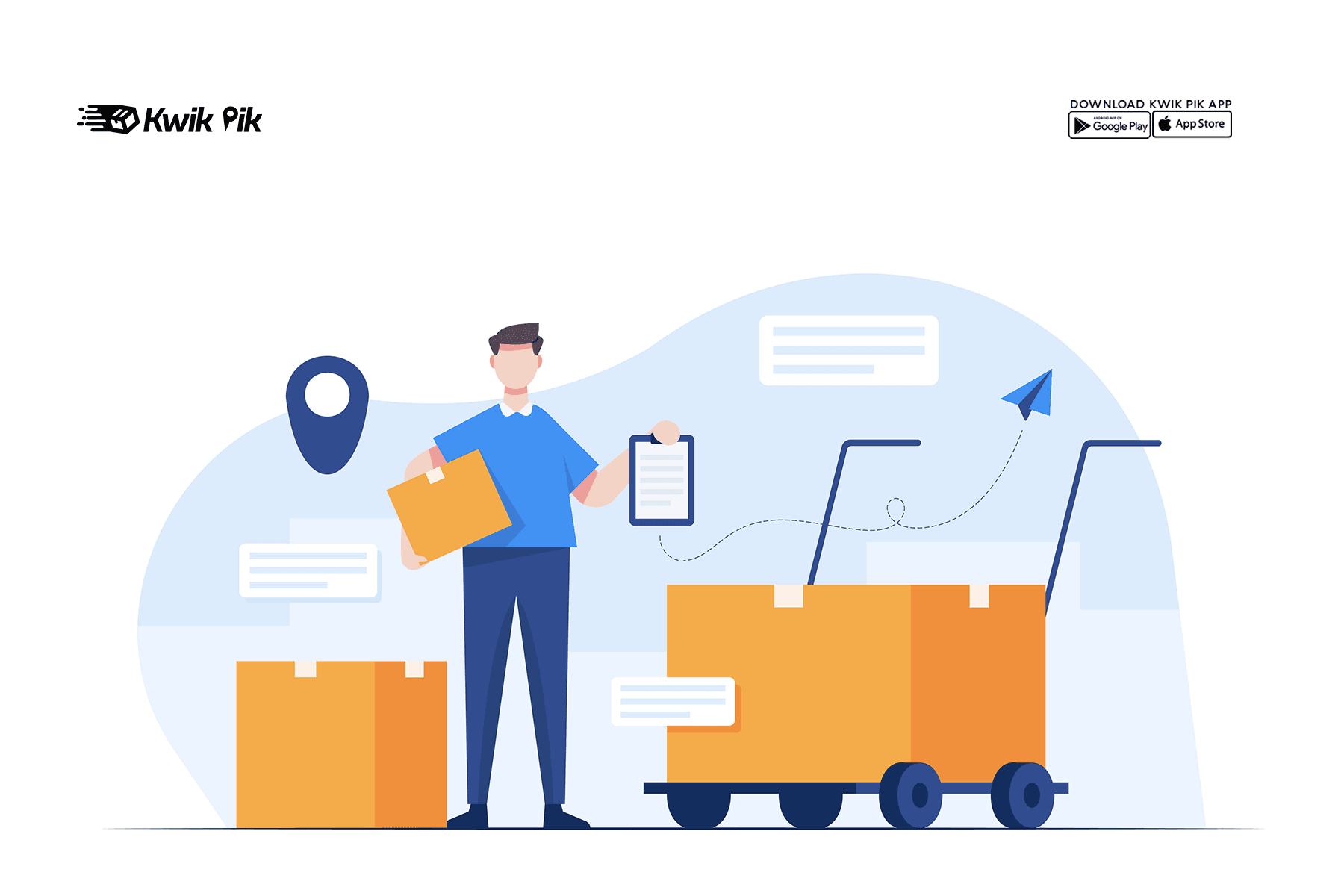
Should I Outsource my Logistics or Handle it In-House?
4 mins read
As a business owner, you constantly have to make decisions for the growth and benefit of your business.
Sometimes, these decisions are straightforward. Other times, you can be torn between options. We first made this post on our LinkedIn and got remarkable community interest, so we’ve decided to put it in a more detailed and long-lasting format.
In this article, we’ll look at the pros and cons of each option and help your decision-making by outlining the factors to consider.
What Does it Mean to Outsource Logistics or Handle it In-House?
Outsourcing logistics and handling it in-house are two different approaches to managing the transportation, distribution, and overall supply chain processes of your business.
Outsourcing logistics means contracting logistics companies to handle various aspects of your company's supply chain e.g. Kwikpik.
They take on responsibilities such as transportation, warehousing, last-mile delivery, and sometimes even the management of the entire supply chain.
In-house logistics means that your company manages its supply chain internally, utilizing its resources, staff, and infrastructure to handle tasks such as transportation, warehousing, and last-mile delivery.
Should I Outsource my Logistics or Handle it In-House?
The decision of whether to outsource logistics or handle it in-house depends on several factors, including your company's size, resources, expertise, and shipping/sales volume.
However, let’s review the pros and cons of each method.
Benefits of Outsourcing Logistics
Cost savings: Outsourcing can reduce costs for your business by eliminating the need to invest in infrastructure, equipment, and personnel.
Access to expertise: Logistics providers have specialized expertise and experience in managing complex supply chains e.g. delivering to underdeveloped areas, a large number of customers at a time, etc.
Scalability: Outsourcing allows you to scale your logistics operations up or down quickly to meet changing demand.
Focus on core competencies: Outsourcing frees up your time and resources to focus on your core business activities.
Use Kwikpik as your delivery partner to facilitate instant deliveries for your customers.
Drawbacks of Outsourcing Logistics
Loss of control: You may have less control over your logistics operations when outsourcing.
Communication challenges: Effective communication with your logistics partner is crucial to ensure smooth operations.
Integration issues: Integrating your systems with external logistics systems can be complex. (However, times are changing and the process is getting easier).
Considerations Before Outsourcing Your Logistics:
Company Size: Small businesses with limited resources may benefit more from outsourcing.
Shipping/Sales Volume: High shipping/sales volumes may justify outsourcing logistics management.
Expertise: If you lack logistics expertise, outsourcing can provide access to specialists.
Cost-Benefit Analysis: Compare the costs and benefits of outsourcing versus in-house management.
Benefits of Handling Logistics In-House
Greater control: You maintain full control over your logistics operations, ensuring alignment with your business goals and allowing for quicker decision-making and responsiveness.
Customization: You can tailor your logistics processes to suit specific needs and standards.
Enhanced security: You may feel more secure managing sensitive aspects of their supply chain, such as proprietary information and data.
Direct customer interaction: You have direct contact with your customers, allowing for better customer service and feedback
Drawbacks of Handling Logistics In-House
Higher costs: Establishing and maintaining in-house logistics operations can be expensive due to infrastructure, staffing, and ongoing maintenance costs.
Expertise requirements: Managing logistics internally requires a high level of expertise and knowledge, which may not be a core competency of the business.
Rigidity: In-house logistics systems may be less adaptable to market changes, as adjustments often require significant time and resources.
Resource constraints: Managing logistics in-house can strain your resources, especially for small businesses.
Alternatives to These Logistics Method
Other options that you can explore in place, particularly, outsourcing logistics or handling it in-house are:
The Hybrid approach: Combine in-house and outsourced logistics for different aspects of your supply chain.
Partnerships: Collaborate with other businesses to share logistics resources and expertise.
Conclusion
Now that we’ve helped make your decision-making process easier, If you're convinced to outsource your logistics, consider working with Kwikpik. Our business partners enjoy instant delivery services at flat, affordable rates to ensure customer satisfaction and loyalty.


